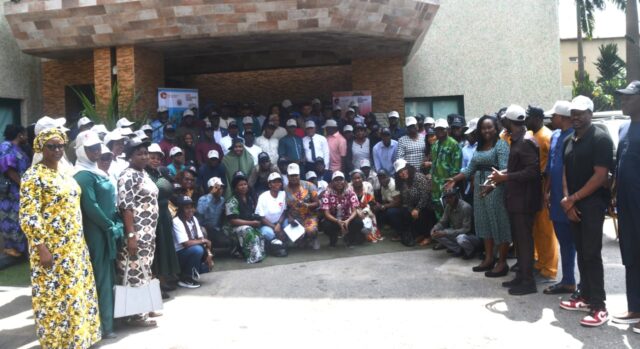By editor
A consortium of Civil Society Organisations (CSOs) and labour unions in the public utilities sector have called for the immediate reversal of all privatisations in the electricity, water and waste management sectors, saying the policy has failed to serve public interest.
The Amalgamated Union of Public Corporations, Civil Service Technical and Recreational Services Employees (AUPCTRE), National Union of Electricity Employees (NUEE), Citizens Free Service Forum (CFSF), Renevlyn Development Initiative (RDI), Child Health Organisation, Kenya and Union of Kenya Civil Servants (UKCS), among others made the call yesterday in a communique at the end of their summit.
The summit themed “Promoting Transparency and Decent Work in Supply Chains in Electricity, Water, and Waste Services in Sub-Saharan Africa” was organised by the Public Services International (PSI), in collaboration with DGB Bildungswerk Bund (DGB BW).
The unions’ representatives: Comrade Alo Lawrence, Acting General Secretary, AUPCTRE, Comrade Opaluwa Simeon, Assistant General Secretary (Liaison), NUEE, Comrade Yusuf Zambuk of CFSF and Philip Jakpor, who represented the CSOs, signed the communique at the end of the 2025 National Public Utilities Summit in Abuja.
The forum said that the one-day summit served as a critical platform for stakeholders to review the impact of the PSI-DGB Project on advocacy for decent work and campaigns against privatisation of the water, electricity and waste sectors.
The participants recommended urgent reversal of privatisations in the electricity sector, as well as all existing privatisations in the water and waste sectors.
“We also recommend suspension of ongoing or planned discussions with World Bank and other IFIs on the privatisation of public assets,” the communique said.
The forum called for adoption of Public-Public Partnerships (PUPs) as a sustainable, democratic, and just alternative, adding that PUPs have proven success in delivering quality public services without profit motives.
They sighted examples, including the Lagos and Kebbi states rice farming and milling partnership that produces the LAKE Rice deal.
They also emphasised the need to reinvest in human capital within the public sector, adding that governments must allocate sufficient resources for the training, motivation, and retention of public sector workers to promote efficiency, innovation, and transparency.
They said that strengthening social dialogue and collaboration among civil society, trade unions and other crucial sectors can hold government to account.
They said, “Governments should put people before profit by halting the privatisation of essential services as we are reaffirming the public sector as the cornerstone of democratic development, equity, and sustainable livelihoods.”
The forum also emphasised the need for the PSI-DGB to critically support education projects among workers on the Public-Public Partnership that is at its infancy in Nigeria.
They posited that majors among the failures of privatisation is in Nigeria’s electricity sector that has not increased power generation or distribution.
“Instead, it has escalating tariffs and banded consumers according to economic status. In the water sector it has shut off consumers and in the waste sector it has discouraged unionism.
“Public revenues have been plundered. Monies that could have been invested in enhancing public services have been sunk in privatized entities that had claimed they would invest in the public utilities. For instance, the Nigerian government and international funders have ploughed over N2 trillion in bail out funds for the 11 Power distributing companies without any single megawatt added to the 12,500 megawatts obtained in 2013.
“Privatisation has increased corruption and conflict of interest. Opaque contracts that did not go through due processes have allowed private individuals and companies to fleece Nigeria while holding unto public utilities.
“For instance, there is no verifiable information on the bond raised by Visionscape Solution Services which was given executive fiat for waste management in Lagos in 2017 until it was forced to suspend operations.
“Workers in the water, electricity, and waste services sectors face precarious work conditions marked by low wages, wage arrears, job insecurity, casualisation and absence of social protection (e.g., pensions and unemployment insurance),” the forum said.
According to them, “These deliberate policies continue to undermine workers’ morale, workers’ dignity, service quality and community well-being.
“Advocates of public sector solutions are largely ignorant on the workings of the Public-Public Partnership Model of managing public utilities and there are few discussions going on about the model.”
They also called for strengthening of social dialogue and collaboration among civil societies, trade unions and other crucial sectors that can hold government to account by putting people before profit and halting the privatisation of essential services while reaffirming the public sector as the cornerstone of democratic development, equity, and sustainable livelihoods.
Discover more from TheTimes Nigeria
Subscribe to get the latest posts sent to your email.









